Food for thoughts
July 28, 2023
Interviews

♾️follow Marie-Anne Frison-Roche on LinkedIn
♾️subscribe to the Newsletter MAFR Regulation, Compliance, Law
____
► Full Reference: M.-A. Frison-Roche & S. Vernet, "La profession investit le Droit de la compliance et détermine sa Raison d’être" ("The profession invests Compliance Law and determines its Raison d'être"), Actualités, Ordre des Géomètres-Experts, July 28, 2023
____
💬read the interview (in French)
____
► Presentation of the interview by the Ordre des Géomètres-Experts: "Pour mieux répondre aux défis d’une société en pleine mutation, ainsi qu’aux attentes de ses clients et concitoyens, la profession détermine sa Raison d’être. Séverine Vernet, première Vice-présidente de l’Ordre des géomètres-experts et Marie-Anne Frison-Roche, professeur de droit économique et spécialiste du droit de la régulation et de la compliance, nous expliquent cette démarche innovante." ("To better meet the challenges of a rapidly changing society and the expectations of its customers and fellow citizens, the profession is defining its raison d'être. Séverine Vernet, First Vice-President of the Ordre des géomètres-experts, and Marie-Anne Frison-Roche, Professor of Economic Law and specialist in Regulatory and Compliance Law, explain this innovative approach.").
____
► Questions asked (in French):
- Séverine Vernet, vous êtes la première Vice-présidente de l’OGE et présidente de la nouvelle commission compliance. Permettez-moi tout d’abord de vous féliciter pour votre réélection. Quels seront les prochains chantiers du mandat qui démarre ? Et votre ambition pour ce nouveau mandat ?
- Marie-Anne Frison-Roche (mafr), vous êtes professeur d’université, spécialiste de droit économique et plus particulièrement du droit de la régulation et de la compliance, vous accompagnez l’Ordre dans la mise en place de cette démarche. Séverine Vernet parle de compliance. Pourriez-vous nous en proposer une définition ?
- L’OGE a créé une commission compliance spécifique que vous présidez. Pouvez-vous nous en dire un peu plus ?
- Comment passe-t-on d’un organisme de régulation à un acteur de la compliance ? En quoi est-ce innovant pour un Ordre professionnel ?
- Comment allez-vous vous y prendre pour engager la profession ?
- Quelles seront les étapes pour passer de la régulation à la compliance ?
________
July 24, 2023
Thesaurus : Juridictions étrangères diverses
► Référence complète : High Court of Justice (Haute Cour de Londres), 24 juillet 2023, aff. n° BL-2023-000215, [2023] EWHC 1897 (Ch), ClientHearth c/ Shell PLC
____
____
🏛️lire le jugement du 25 mai 2023 rendu dans la même affaire et que la présente décision confirme
________

July 15, 2023
Publications

♾️follow Marie-Anne Frison-Roche on LinkedIn
♾️subscribe to the Newsletter MAFR Regulation, Compliance, Law
____
► Full Reference: M.-A. Frison-Roche, The deployment of Regulatory Law through Compliance Law in the European project, Working Paper, July 2023.
____
📝this Working Paper is the basis for the article "Le déploiement du Droit de la Régulation par le Droit de la Compliance dans le projet européen" ("The deployment of Regulatory Law through Compliance Law in the European project"), which is part of the special issue La régulation par la compliance, perspective européenne, published in French by the Revue des affaires européennes (Law and European Affairs).
____
► Summary of this Working Paper: Compliance Law is neither a method of obeying regulations, nor a simple neutral method of ensuring the effectiveness of norms, nor a means of enforcement displaced from Ex Post to Ex Ante. It is an extension of Regulatory Law and goes beyond it. Like it, it aims to build spaces according to a political project specific to an area, such as Europe. Branch of Law looking to the future as Regulatory Law does, it constructs and maintains, in a systemic way, sustainable, albeit unstable, balances to achieve the 'Monumental Goals' in which its normativity resides: : security, sustainability, probity, truth, and dignity. By internalising these Monumental Goals in the companies in a position to achieve them, the "crucial companies", Compliance Law preserves the logic of Regulatory Law, offering it a prodigious expansion since it frees it from the condition of a sector and territorial borders, which seemed tautological, by associating private powers and public will, which remains primary. In this way, Compliance can regulate the digital space and climate issue through political choices made by a sovereign Europe.
________
🔓read the developments below⤵️
July 15, 2023
Newsletter MAFR - Law, Compliance, Regulation

🌐suivre Marie-Anne Frison-Roche sur LinkedIn
🌐s'abonner à la Newsletter MAFR Regulation, Compliance, Law
____
► Référence complète : M.-A. Frison-Roche, "Compliance & Contrat / lien entre Consentement et Volonté ; enjeu de responsabilité personnelle : CNIL, 15 juin 2023, Criteo", Newsletter MAFR Law, Compliance, Regulation, 15 juillet 2023.
____
📧Lire par abonnement gratuit d'autres news de la Newsletter MAFR - Law, Compliance, Regulation
____
🧱L'obligation légale de Compliance doit être exécutée grâce à des contrats, mais l'on ne peut s'en décharger par des contrats : CNIL, 15 juin 2023, Criteo
____
📧lire l'article ⤵️
July 13, 2023
Thesaurus : Doctrine
► Référence complète : N. Ida, "Contrat et devoir de vigilance des sociétés", JCP E, n° 28, 13 juillet 2023, pp.17-26.
____
► Résumé de l'article (fait par l'auteur) : "Le contrat constitue l’instrument indispensable de déploiement de la vigilance sociale et environnementale dans les « chaînes de valeur » des sociétés donneuses d’ordre. Pourtant, la loi n° 2017-399 du 27 mars 2017 sur le devoir de vigilance des sociétés mères et entreprises donneuses d’ordre n'évoque pas le contrat, dont les liens avec le devoir de vigilance ont en conséquence été peu étudiés. Ce silence étonne car les sociétés concernées ne peuvent exercer leur devoir légal qu’en devenant créancières d’obligations de vigilance au moyen de clauses insérées dans leurs contrats commerciaux. Cette vigilance contractuelle imposée par la loi et bientôt par la directive européenne en cours d’adoption ne pourra atteindre son but qu’à la condition d’adapter les clauses de vigilance aux spécificités des relations contractuelles entretenues avec les fournisseurs et sous-traitants des sociétés donneuses d’ordre.".
____
🦉Cet article est accessible en texte intégral pour les personnes inscrites aux enseignements de la Professeure Marie-Anne Frison-Roche
________
July 10, 2023
Thesaurus : Doctrine
► Référence complète : R. Maurel, « Directive vigilance des entreprises en matière de durabilité. À propos de la proposition ambitieuse du Parlement européen », JCP G, n° 27, 10 juillet 2023, pp. 1304-1306.
____
► Résumé de l'article :
____
🦉Cet article est accessible en texte intégral pour les personnes inscrites aux enseignements de la Professeure Marie-Anne Frison-Roche
________
July 10, 2023
Hearings by a Committee or Public organisation
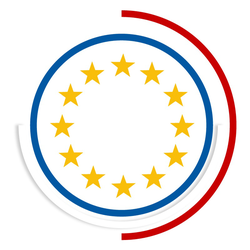
🌐suivre Marie-Anne Frison-Roche sur LinkedIn
🌐s'abonner à la Newsletter MAFR Regulation, Compliance, Law
____
► Référence complète : M.-A. Frison-Roche, audition par les rapporteures de la Commission des affaires européennes de l'Assemblée Nationale, Sophia Chikirou et Mireille Clapot dans le cadre de l'élaboration du Rapport sur devoir de vigilance des entreprises, 7 juin 2023.
____
Ce résumé a été publié après la publication du rapport parlementaire, pour ne pas gêner l'élaboration de celui-ci.
► Résumé de l'audition : À la demande des députées, il n'y a pas eu de présentation ex cathedra mais plutôt une discussion à partir de questions posées par celles-ci.
La première demande faite par Sophia Chikirou a été de formuler une définition de ce qu'est la "Régulation", puisque j'ai été présentée au début de l'audition comme ayant eu un rôle déterminant dans l'élaboration du Droit de la Régulation.
J'ai donc expliqué à la fois la façon dont les régulations peuvent être d'origines techniques ou politiques (souvent un mixte des deux), la place corrélative de l'Etat, l'évolution de cela depuis 20 ans, la constance du Droit de la Régulation au-delà de la diversité des secteurs et des sensibilités politiques des Gouvernements successifs, et l'importance du projet Européen.
J'ai montré que le Droit de la Régulation est par nature Ex Ante, porte sur l'avenir qu'il construit, demeure pour maintenir un équilibre par nature instable, l'Autorité de régulation n'étant que l'indice du Droit de la Régulation et non pas sa source.
Puis j'ai montré que la Compliance, dont la Vigilance est la pointe avancée, est le prolongement du Droit de la Régulation, le Droit de la Compliance ayant la même logique Ex Ante, trouvant sa normativité dans les buts poursuivis. Mais elle déploie le Droit de la Régulation et en démultiplie l'ambition puisqu'elle charge les entreprises de concrétiser ses buts, qu'elles le veuillent (RSE) ou qu'elles ne le veuillent pas (par exemple Sapin 2) avec une portée naturellement extraterritoriale. En cela le Droit de la Compliance est tout à fait ancré, ancré dans le Droit de la Régulation, et constitue une sorte de Révolution, dont la loi de 2017, dite "loi Vigilance", est la plus perceptible manifestation.
C'est ainsi opérée le passage du Droit de la Régulation au Droit de la Compliance, lequel a transformé les Autorités de Régulation, qui construisent, surveillent et maintiennent en équilibre les structures des secteurs en Autorités de Supervision, car la Supervision porte techniquement sur les opérateurs (ce que font les contrôles mis en place par la Vigilance) et non sur les structures, lesquelles sont prises en charge par les opérateurs (par exemple dans les chaines de valeur).
Cela explique que techniquement le Droit de la Vigilance emprunte au Droit de la Régulation et de la Supervision bancaire, car le secteur bancaire gère les risques systèmiques par la solidité et la puissance des acteurs bancaires et les outils sont les mêmes.
On se rend compte aujourd'hui de cette logique systémique de la Vigilance mais cela était déjà visible dès 2016📎
La deuxième demande faite par Sophia Chikirou a porté sur le sens du projet de directive, notamment ses enjeux et son effectivité au regard de ces explications, apparaissant comme nouvelles et éclairantes.
J'ai montré que ce texte est effectivement important et doit être compris comme l'expression politique d'une Europe qui a une sorte de "plan". Ainsi la CS3D doit se comprendre comme le texte gémellaire de la CSRD. De la même façon la loi de 2017 doit se comprendre au regard de ce plan européen. Lequel doit embrasser le DMA et le DSA. Tout cela est du Droit de la Compliance, dont la Vigilance est, et dès la loi de 2017, la "pointe avancée".
Tout le sens, et c'est le même dans tous les textes, est dans les buts. Ce sont des buts systémiques, qui portent sur le futur : éviter dans le futur une catastrophique, faire en sorte par une action présente qu'elle n'arrive pas (but "négatif"), ou (si l'on est encore plus ambitieux) faire en sorte que quelque chose arrive (but "positif") : équilibre climatique, respect d'autrui, égalité effective, probité, dignité, comme principes de fonctionnement des systèmes.
Pour cela, et pragmatiquement puisqu'il s'agit d'obtenir de l'effectivité, l'on repère les organisations qui peuvent réaliser cela : les entreprises. Plus elles sont puissantes et plus cela est possible. La puissance des entreprises n'est pas seulement bienvenue : elle est nécessaire. Le Droit de la Compliance constitue donc, et les textes qui l'expriment, une alliance entre l'Etat et les entreprises, et non pas une défaite de l'Etat (puisqu'il est plus ambitieux que jamais), la puissance des entreprises étant recherchée et devant s'exprimer.
Plus précisément, il s'agit (trilogie essentielle en Droit de la Compliance) d'obtenir l'effectivité, l'efficacité et l'efficience des textes. J'ai expliqué la définition de ces trois notions et leur articulation en pratique, notamment sur le terrain probatoire.
La troisième demande faite par Mireille Clapot a porté sur la présentation faite par moi de la logique préventive du système de Compliance, de Vigilance et notamment dans la loi de 2017, mais elle observe que le centre du dispositif est bien la réparation du dommage et non la prévention.
Effectivement, j'ai donc développé cette question essentielle de l'Ex Ante et de l'Ex Post, pour montrer que les débats avaient lieu à juste titre car le fonctionnement du dispositif n'étaient pas encore fixés par la jurisprudence. Mais si le Droit de la Régulation est bien de l'Ex Ante, le Droit de la Compliance, puisqu'il est entré dans l'entreprise même et dans des supervision, est davantage dans un continuum entre l'avant et l'après : ainsi une notion-clé est la "durabilité" (dans le titre même de la directive) et sous la "responsabilité" ce que l'on demande à l'entreprise c'est avant tout de rendre des comptes de l'usage qu'elle a fait de sa puissance (accountability), mais de sauver le monde (puisqu'à l'impossible nul n'est tenu). Si le dommage est survenu, sa responsabilité est acquise, mais l'enjeu central est de prévenir la survenance d'un dommage systémique, autant que faire se peut, voire d'améliorer les systèmes.
La quatrième demande, faite par Sophia Chikirou a porté sur la mise en place par chaque Etat-membre d'une autorité de régulation.
J'ai souligné la différence entre une Autorité de Régulation et, ce dont il s'agit ici, d'une Autorité de Supervision, la mission dont il s'agit ici étant de superviser les entreprises en charge du devoir de vigilance.
Dans son état actuel le texte ne précise pas la forme juridique institutionnelle que devrait prendre l'organe en charge de cette supervision. La difficulté technique vient du fait qu'il ne s'agit pas d'un secteur et qu'il est difficile de construire un "régulateur sans secteur" ou un superviseur ayant grand pouvoir sur ce qui n'est pas un secteur, sauf à faire autant d'Autorités qu'il y a d'industries concernées, ce qui produirait une myriade d'institutions... C''est sans doute techniquement le sujet le plus difficile dans la transposition, l'exemple allemande pouvant aider le Législateur français.
La cinquième demande faite par les deux députées porte sur la façon dont les entreprises peuvent assumer de telles obligations engendrées par ces textes, certains affirmant que cela est impossible.
J'ai expliqué que pour ma part il faut raison garder et que ce sont les juges qui sont gardiens de cela. Les entreprises ne peuvent pas sauver le monde, mais ce n'est pas ce que les textes leur demande et ce serait méconnaitre l'esprit des textes que d'affirmer cela.
Les entreprises ne sont assujetties au devoir de vigilance qu'en raison de leur aptitude à agir (détecter, prévenir, éduquer, ajuster les comportements, etc.), c'est-à-dire parce qu'elles "sont en position", non pas parce qu'elles seraient déjà "coupables". C'est un contresens que de dire cela.
C'est une chance pour l'Etat d'avoir sous sa main des entités qui ont la puissance de porter ses ambitions et c'est aussi pour cela qu'il faut absolument que le Droit de la Compliance, dont la Vigilance fait partie, soit de portée extraterritoriale, pour qu'il n'y ait pas d'effet d'aubaine.
L'entreprise fait ensuite ce qu'elle peut. Elle doit donner à voir ce qu'elle fait, dire ce qu'elle fera, le dire aux personnes concernées et au juge qui sera éventuellement saisi, l'exprimer au regard des buts monumentaux (changer le futur...) négatifs et positifs qui donne sens à tout le système : tout cela mais pas plus que cela.
La sixième demande faite par Mireille Clapot a porté sur l'impact négatif que la loi de 2017, puis potentiellement la Directive, peuvent avoir sur des contrats, notamment internationaux, conclus par des entreprises français.
J'ai tout à fait souligné comme elle le caractère essentiel de cette analyse économique du Droit. C'est pour cela d'une part que dans les contrats les entreprises soient incitées à insérer des "clauses de compliance", dont les "clauses de vigilance" font partie (notion que j'ai proposée), que les juges interprètent et appliquent celles-ci en articulant Droit des contrats et Droit de la compliance, et que leur portée à la fois sur les tiers et sur d'autres territoires soient reconnues.
En effet le Droit de la Compliance, dont la Vigilance est la pointe avancée, est une façon d'humaniser l'économie et non de remettre en cause le principe de liberté qui doit continuer à animer celle-ci. Le contrat est un outil essentiel de détecter et de prévenir et les entreprises doivent pouvoir l'utiliser librement. J'ai développé sur ce point le rôle que le juge, y compris le juge de droit commun, va jouer.
____
► Voir dans mes travaux ceux qui peuvent présenter un intérêt au regard de cette discussion menée par les deux Rapporteures⤵️
🕴️M.-A. Frison-Roche, 🎤Le rôle du Juge dans le déploiement du Droit de la Régulation en Droit de la Compliance, et le document de travail sous-jacent : juin 2023.
🕴️M.-A. Frison-Roche, 🚧La vigilance, pièce d'un puzzle européen, mars 2023.
🕴️M.-A. Frison-Roche, 🚧Penser et manier la Vigilance par ses Buts Monumentaux de Compliance, mars 2023.
🕴️M.-A. Frison-Roche, 📝Contrat de compliance, clauses de compliance, mars 2022.
🕴️M.-A. Frison-Roche, 🚧L'invention de la vigilance : un terme nouveau pour une Responsabilité en Ex Ante, février 2021.
🕴️M.-A. Frison-Roche, 📝Le Droit de la compliance, 2016.
____
►lire le rapport parlementaire
________
🕴️M.-A. Frison-Roche, 🚧Compliance Law, 2016.
July 8, 2023
Newsletter MAFR - Law, Compliance, Regulation

♾️suivre Marie-Anne Frison-Roche sur LinkedIn
♾️s'abonner à la Newsletter MAFR Regulation, Compliance, Law
____
► Référence complète : M.-A. Frison-Roche, "Présent et avenir des "causes systémiques" : cas des sites pornos (jugement 7 juillet 2023)", Newsletter MAFR Law, Compliance, Regulation, 8 juillet 2023.
____
📧Lire par abonnement gratuit d'autres news de la Newsletter MAFR - Law, Compliance, Regulation
____
🧱Consécration de la notion proposée de "cause systémique" dans les contentieux de Droit de la compliance : jugement du Tribunal judiciaire de Paris du 7 juillet 2023, "Youporn" (Arcom c/ Orange et autres)
Ce jugement remet de l'ordre et sursoit à statuer pour permettre au Conseil d'État de statuer sur ce qui est la même question impliquant le système numérique, les obligations des plateformes, la technologie. L'office du juge est en pleine transformation lorsque la Compliance est impliquée et que les systèmes eux-mêmes sont en jeu.
____
📧lire l'article ⤵️
July 6, 2023
Thesaurus : 08. Juridictions du fond
► Référence complète : TJ Paris, 5ème chambre, 2ème section, ordonnance du juge de la mise en état, 6 juillet 2023, n° RG 22/03403, TotalÉnergies
____
____
📝commentaires de la décision :
- Dalloz actualité, 13 juillet 2023, obs. J.-B. Barbièri & A. Touzain
- Rev. sociétés, 2023, p.793, obs. A. Danis-Fatôme & N. Hoffschir
- Gaz. pal., 19 septembre 2023, n° 29, n°GPL453l6, pp. 2-3, note V. Mazeaud
- Bull. Joly, novembre 2023, n° BJS202m8, pp. 17-19, note E. Schlumberger
________
July 5, 2023
Interviews

♾️follow Marie-Anne Frison-Roche on LinkedIn
♾️subscribe to the Newsletter MAFR Regulation, Compliance, Law
____
► Full Reference: M.-A. Frison-Roche et A. Seban, "Compliance : les cours suprêmes s’emparent de la question de ses enjeux juridictionnels" ("Compliance : the Supreme Courts take up the issue of its jurisdictional implications"), interview with Olivia Dufour, Actu-Juridique, 5 July 2023.
____
💬read the interview (in French)
____
► Presentation of the interview by the journal (in French): "Le 2 juin dernier s’est tenu au Conseil d’État un colloque fondateur sur le rôle du juge dans la compliance. Le professeur Marie-Anne Frison-Roche et le conseiller d’État Alain Seban, qui ont tout deux contribué aux débats, ont accepté de commenter les principaux enseignements des travaux de cette journée."
____
► Questions asked (in French):
- Le colloque « De la régulation à la compliance, quel rôle pour les juges » qui s’est tenu au Conseil d’État le 2 juin dernier a rassemblé juges civils et administratifs. En quoi le juge administratif est-il concerné par la compliance qui semble plutôt une affaire d’entreprises et donc de justice civile et commerciale ?
- Vincent Vigneau, président de la chambre commerciale de la Cour de cassation rappelle que la compliance a plutôt vocation à éviter le juge en se situant ex ante, pourtant on découvre que le juge lui-même accepte de plus en plus de se prononcer en ex ante… qu’en est-il ?
- Quel peut donc être le rôle du juge dans la compliance ? Peut-il contribuer à faire émerger un droit de la compliance et à l’harmoniser ?
- François Ancel semble considérer que le rôle juge va devoir adapter son office à la compliance, il évoque trois concepts : téléologique, soutenabilité et efficacité…
- Le juge dispose-t-il en l’état de tous les outils nécessaires ? Si tel n’est pas le cas, que faut-il créer ?
- En quoi le dialogue des juges, civil/administratif, national/européen, national/international, est-il important ?
- Que veut dire F. Ancel quand il déclare que le juge doit évoluer du constat à la trajectoire ?
- Existe-t-il des domaines où la compliance entre en conflit avec des principes processuels, par exemple le principe de légalité des peines ?
- En quoi la notion de « buts monumentaux », que vous avez créée en 2016, a-t-elle trouvé sa place dans le droit ?
________
July 3, 2023
Newsletter MAFR - Law, Compliance, Regulation

♾️suivre Marie-Anne Frison-Roche sur LinkedIn
♾️s'abonner à la Newsletter MAFR Regulation, Compliance, Law
____
► Référence complète : M.-A. Frison-Roche, "Compliance. CJIP : le calcul de l'amende d'intérêt public / CJIP, Vercel (Lactalis), 30 mars 2023", Newsletter MAFR Law, Compliance, Regulation, 3 juillet 2023.
____
📧Lire par abonnement gratuit d'autres news de la Newsletter MAFR - Law, Compliance, Regulation
____
🧱 Si l'entreprise n'a pas directement gagné d'argent, quel peut être le montant de l'amende d'intérêt public fixé par une CJIP ? Analyse de la CJIP du 30 mars 2023 Groupe Lactalis, validée par l'ordonnance du Président du Tribunal de Besançon du 1ier juin 2023.
____
📧lire l'article ⤵️
July 2, 2023
Newsletter MAFR - Law, Compliance, Regulation

♾️suivre Marie-Anne Frison-Roche sur LinkedIn
♾️s'abonner à la Newsletter MAFR Regulation, Compliance, Law
____
► Référence complète : M.-A. Frison-Roche, "Interrégulation : rapport du "pôle commun" entre l'AMF et l'ACPR, reflet d'un phénomène général à tous les secteurs et toutes les autorités", Newsletter MAFR Law, Compliance, Regulation, 28 juin 2023.
____
📧Lire par abonnement gratuit d'autres news de la Newsletter MAFR - Law, Compliance, Regulation
____
🔴Interrégulation, voie d'ajustement de la Régulation à un monde changé
L'interrégulation, articulée au Droit souple, est la voie qui permet de conserver la spécificité du Droit de la Régulation, aujourd'hui prolongée par le Droit de la Compliance, tout en répondant à un monde dont le numérique efface les frontières en y imposant pourtant une conception souveraine des politiques : exemple du Rapport annuel publié par le "pôle commun" publié par l'Autorité des marchés financiers (AMF) et l'Autorité de contrôle prudentiel et de résolution (ACPR) en juin 2023.
____
📧lire l'article ⤵️
June 28, 2023
Thesaurus : Soft Law
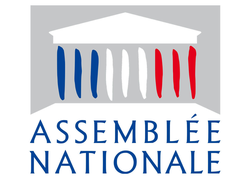
► Référence complète : Assemblée Nationale, Rapport d'information sur le devoir de vigilance des entreprises en matière de durabilité, déposé par la Commission des affaires européennes, présenté par Madame la députée Sophia Chikirou et Madame la députée Mireille Clapot, 28 juin 2023.
____
________
June 28, 2023
Newsletter MAFR - Law, Compliance, Regulation

♾️suivre Marie-Anne Frison-Roche sur LinkedIn
♾️s'abonner à la Newsletter MAFR Regulation, Compliance, Law
____
► Référence complète : M.-A. Frison-Roche, "S'engager n'est pas contracter (décision du Conseil d'État du 21 avril 2023, Orange c/ Arcep)", Newsletter MAFR Law, Compliance, Regulation, 28 juin 2023.
____
📧Lire par abonnement gratuit d'autres news de la Newsletter MAFR - Law, Compliance, Regulation
____
🔴Engagements, acceptation, convention : multiplication de ces actes de volonté acceptés qui ne sont pourtant pas des contrats et échappent à leurs principes
Dans sa décision du 21 avril 2023, société Orangec/ Arcep, le Conseil d'État dit ce que ne constitue pas les engagements souscrits par l'opérateurs pour le déploiement de la fibre, acceptés par le ministre : ce n'est pas un contrat. La "qualification négative" est donc donnée. Mais alors qu'est-ce que c'est ?
____
📧lire l'article ⤵️
June 22, 2023
Thesaurus : 05. CJCE - CJUE
► Full Reference: CJUE, 1st Chamber, 22 June 2023, C-579/21, Pankki S.
____
________
June 19, 2023
Conferences
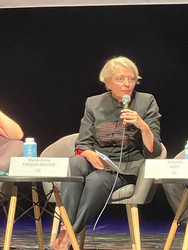
♾️ follow Marie-Anne Frison-Roche sur LinkedIn
♾️subscribe to the Newsletter MAFR Regulation, Compliance, Law
____
► Full Reference: M.-A. Frison-Roche, participation in the panel "Vigilance (due diligence)", in International Law Association (ILA), 150th Anniversary Symposium of the ILA/ADI, Paris, 19 June 2023.
____
🧮See the full programme of this event
________
June 15, 2023
Thesaurus : Doctrine

► Référence complète : A. Beckers & G. Teubner, Three Liability Regimes for Artificial Intelligence: Algorithmic Actants, Hybrids, Crowds, Pedone, 2018.
____
► Présentation de l'ouvrage (par les auteurs) : This book proposes three liability regimes to combat the wide responsibility gaps caused by AI systems – vicarious liability for autonomous software agents (actants); enterprise liability for inseparable human-AI interactions (hybrids); and collective fund liability for interconnected AI systems (crowds). Based on information technology studies, the book first develops a threefold typology that distinguishes individual, hybrid and collective machine behaviour. A subsequent social science analysis specifies the socio-digital institutions related to this threefold typology. Then it determines the social risks that emerge when algorithms operate within these institutions. Actants raise the risk of digital autonomy, hybrids the risk of double contingency in human-algorithm encounters, crowds the risk of opaque interconnections. The book demonstrates that the law needs to respond to these specific risks, by recognising personified algorithms as vicarious agents, human-machine associations as collective enterprises, and interconnected systems as risk pools – and by developing corresponding liability rules. The book relies on a unique combination of information technology studies, sociological institution and risk analysis, and comparative law. This approach uncovers recursive relations between types of machine behaviour, emergent socio-digital institutions, their concomitant risks, legal conditions of liability rules, and ascription of legal status to the algorithms involved.
June 14, 2023
Conferences
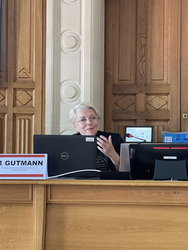
♾️follow Marie-Anne Frison-Roche on LinkedIn
♾️subscribe to the Newsletter MAFR Regulation, Compliance, Law
____
► Full Reference: M.-A. Frison-Roche, "Compliance et droit processuel" ("Compliance and Procedural Law"), in B. Deffains, M.-A. Frison-Roche and J.-B. Racine (dir.), Journal of Regulation & Compliance (JoRC) and University Panthéon-Assas (Paris II), Compliance : Obligation, devoir, pouvoir, culture (Compliance : obligation, duty, power, culture), University Panthéon-Assas, Salle des Conseils, 14 June 2023.
____
🧮See the full programme of this event
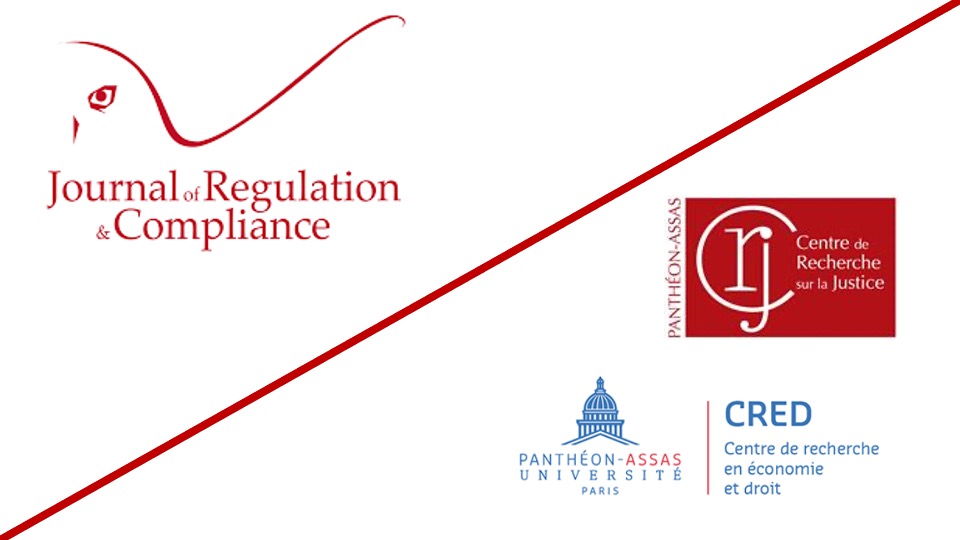
____
🎤see the other speech made during the first day of this symposium : "L'obligation de compliance, entre volonté et consentement : obligation sur obligation vaut" ("Compliance Obligation, between will and consent: obligation on obligation works")
____
► Summary of the conference: After referring to the chapter in the book Compliance Jurisdictionalisation, which deals more specifically with Procedural Law
The first development relates to the fact that the relationship between Compliance Law and Procedural Law is very difficult because it is often said that they simply have nothing to do with each other, or that they have everything to dislike each other. This is because Compliance is often reduced to processes, and to the mechanical place that algorithms could take in it, in taking care of everything.
Compliance would even have the purpose and effect of ensuring that the company and its managers never come into contact with a judge, the public prosecutor being their best ally in this respect.
Secondly, I recalled the very common idea that Procedural Law is a kind of 'tribute' that the rule of Law demands, which certainly weighs down companies when compared with companies living in systems in which there's not not such a price.
But many stress that Procedural Law could become a model. This can be justified and technically anticipated because it has already happened in Regulation Law, and Compliance Law is the deployment of it
In the third stage, I worked on the alliance between the two, with the procedure (rather than the process) modifying compliance and thereby reinforcing it, evoking the way in which this can manifest itself technically
In the fourth step, I looked for what would be the "naturally appropriate procedure" for Compliance: one that takes into account the duration and the development of "solutions", to which the notion of "sustainability", which is central in the substantive Law of Compliance, refers.
In a fifth stage, and devoting more time to this, I have pointed out where innovation should be the strongest: the proof, the probatory obligation being the "part totale" ("total part") of the compliance obligation. This major issue will be the subject of a series of symposiums held in 2024.
________
See the articles that are part of the Second chapter of the book 🕴️M.-A. Frison-Roche (ed.), 📘Compliance jurisdictionalisation, 2023 :
- 🕴️N. Cayrol, 📝General Procedural Law in Compliance Law,
- 🕴️F. Ancel, 📝The procedural principle of compliance, a new trial leading principle?,
- 🕴️B. Sillaman, 📝Privilege and Cooperation: Procedural Lessons Learned from the U.S. for Global Application,
- 🕴️A. Linden, 📝Motivation and publicity of the decisions of the restricted committee of the French Personal Data Protection Commission (Commission nationale de l'informatique et des libertés-CNIL) in a compliance perspective,
- 🕴️S. Scemla and 🕴️D. Paillot, 📝The supervisory Authorities face difficulties to apprehend the Rights of the Defense,
- 🕴️M.-A. Frison-Roche, 📝Adjusting by the nature of things General Procedural Law to Compliance Law.
🕴️M.-A. Frison-Roche, 🚧From Regulation Law to Compliance Law, 2017.
🕴️M.-A. Frison-Roche, 🎤Le rôle du Juge dans le déploiement du Droit de la Régulation en Droit de la Compliance (The role of the Judge in the deployment of Regulatory Law in Compliance Law), in 🧮De la Régulation à la Compliance : quel rôle pour le Juge ?, 2023.
Notably in this perspective, 🕴️M.-A. Frison-Roche and 🕴️M. Boissavy, 📕Compliance et droits de la défense. Enquête interne - CJIP - CRPC (Compliance and Due Process. Internal Investigation - DPA), 2024.
June 14, 2023
Conferences
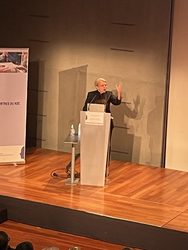
🌐follow Marie-Anne Frison-Roche on LinkedIn
🌐subscribe to the Newsletter MAFR Regulation, Compliance, Law
____
► Full Reference: M.-A. Frison-Roche, "L'esprit des Lois en matière de vigilance" ("Spirit of Law in Vigilance (Due Diligences) matters"), in Haut Conseil du Commissariat aux Comptes (H3C), Réalités et défis de la CSRD - Perspectives du devoir de vigilance, Paris, 14 June 2023.
____
🎥watch the video of a part of the speech (in French)
____
🧱read the description of the speeches of other speakers of this panel (in French)
____
The speech took place during the third-round table devoted to the Perspectives du devoir de vigilance (Perspectives of the duty of vigilance), the first round table having been devoted to the lessons that the DPEF can provide for the CSRD, and the second to the transposition work of the CSRD.
🧮See the full programme of this annual event (in French)
____
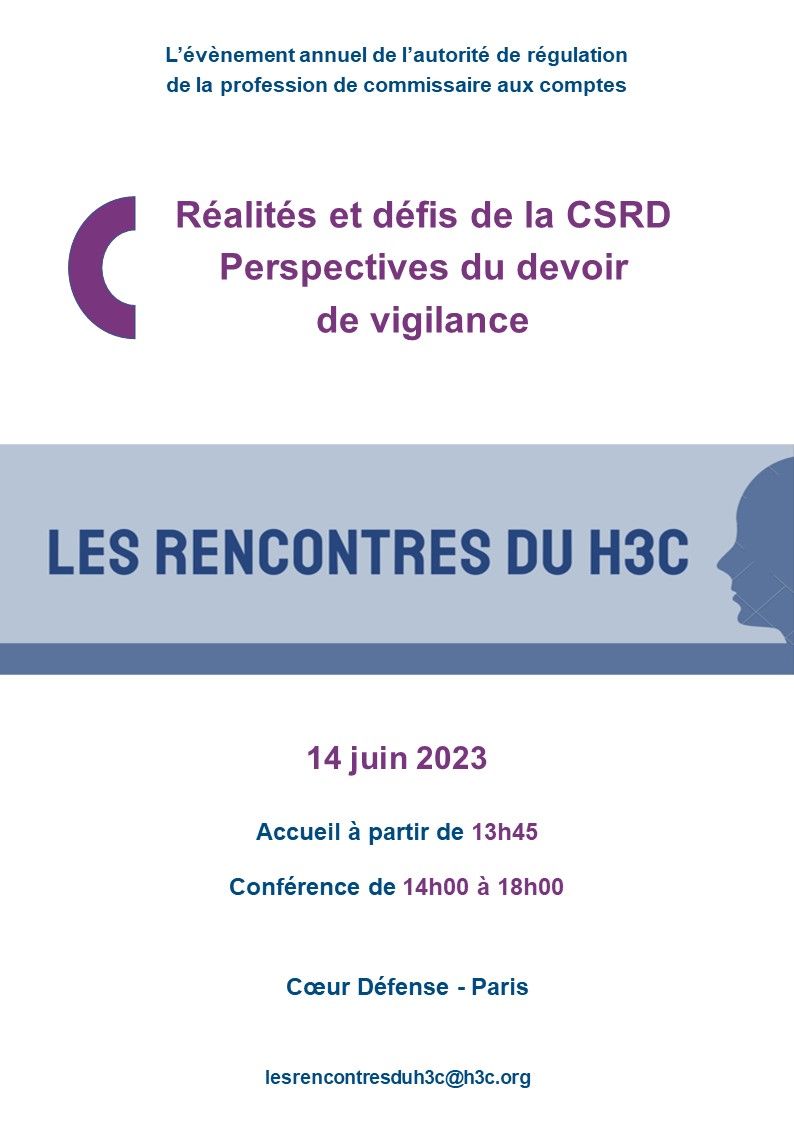
► English summary of the speech: In consideration of and in addition to what has been said, explained and even affirmed by other speakers, I have emphasised that 'vigilance" laws is not a 'regulation' like any other, but the leading edge of a very vast movement, Compliance Law, in which the 2017 French law is the driving force. For its application, the Judge, who is at the centre because of the will of the Legislator, is already taking into consideration the CS3D, the twin text of the CSRD.
The texts must not be seen in isolation. If we isolate them from each other, they become almost incomprehensible, their meaning appearing uncertain, even threatening: we need to understand the spirit of these texts, which are indeed new, because they aim to provide answers to the new world we have entered. We must all rejoice in this political ambition, which is taking a legal form, and work to make it efficient: Legislators, companies, auditors, Regulators and Judges.
If we do not stop at the letter, which would be to reduce Compliance to conformity, whereas Compliance Law, particularly Vigilance, is the extension of Regulation, finds its meaning in the Goals, we see that the French law of 2017, known as the "Vigilance law", which copies all the techniques of the French law known as "Sapin 2", gives goals simple to understand to the companies subject to the Legislator's will: detect and prevent environmental and human rights abuses in the value chains.
The logic is therefore Ex-Ante.
This Ex-Ante logic is retained by the CS3D directive.
The Judge is central to it. But the responsibility which the NGOs will ask him to trigger is itself an "Ex Ante responsibility", the Compliance trials being like "accountability" trials, to ensure that companies act in accordance with the Goals set by the Legislator.
This is transforming the role of the Judge, who must find effective solutions for the future. The discussion and the adversarial principle will become more important. Mediation will be encouraged. Stakeholders and the company will have to work together, and this method, which was intended by the Legislator for drawing up the vigilance plan, will be continued in the supporting legal proceedings.
This will also transform the company, and the role played by those who accredit the information on the company's actions and long-term strategies: auditors therefore have a central role to play.
________

June 13, 2023
Organization of scientific events
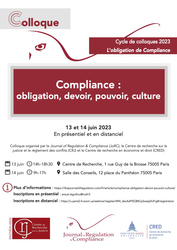
► Référence complète : B. Deffains, M.-A. Frison-Roche et J.-B. Racine (dir.), Journal of Regulation & Compliance (JoRC), Centre de recherche sur la justice et le règlement des conflits (CRJ) et Centre de recherche en économie (CRED) de l'Université Paris Panthéon-Assas (Paris II), Compliance : Obligation, devoir, pouvoir, culture, Université Paris Panthéon-Assas, 13 et 14 juin 2023.
____
🏗️Ce colloque s'inscrit dans le cycle de colloques organisé par le Journal of Regulation & Compliance (JoRC) et ses Universités partenaires, portant en 2023 sur le thème général de L'Obligation de Compliance.
____
📚Les travaux s'inséreront ensuite dans les ouvrages :
📕L'obligation de Compliance, à paraître dans la collection 📚Régulations & Compliance, coéditée par le Journal of Regulation & Compliance (JoRC) et Dalloz, publié en langue française.
📘Compliance Obligation, à paraître dans la collection 📚Compliance & Regulation, coéditée par le Journal of Regulation & Compliance (JoRC) et Bruylant, publié en langue anglaise.
____
► Présentation générale du colloque : "L'obligation" est au cœur de bien des disciplines. Les techniques de compliance prennent très souvent la forme d'obligations. Mais pour ne mentionner que les premières interrogations qui viennent à l'esprit et dans les cas, notamment ceux qui sont posés aux juridictions, c'est paradoxalement assez peu le "Droit des obligations" qui a été utilisé, le Droit de la Compliance étant d'une part assez souvent assimilé à la "réglementation", et son unilatéralité, comme le fût le Droit de la Régulation, branche du Droit qu'il prolonge, d'autre part on lui a souvent associé l'éthique, la morale, une culture partagée, tout ce qui semble mettre en distance de l'obligation. Les notions de "devoir" et d'"engagement", prennent de plus en plus place dans le Droit de la Compliance, avec une portée encore incertaine. C'est pourquoi, au-delà de la multiplicité des "obligations de compliance", l'on peut se demander s'il existe une "obligation de compliance", quelle serait sa définition et son rapport avec tout ce qui, dans le Droit de la Compliance, ne serait pas une obligation.
____
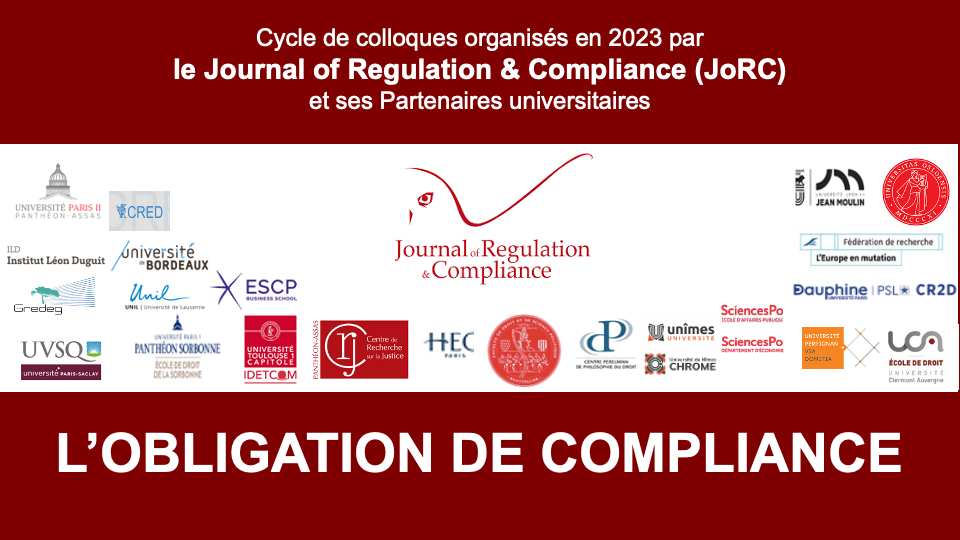

____
► Interviennent :
🎤Jean-Sébastien Borghetti, professeur à l'Université Panthéon-Assas (Paris II)
🎤Louis d'Avout, professeur à l'Université Paris Panthéon-Assas (Paris II)
🎤Bruno Deffains, professeur d'économie du Droit, Université Panthéon-Assas (Paris II)
🎤Marie-Anne Frison-Roche, professeur de Droit de la Régulation et de la Compliance, directrice du Journal of Regulation & Compliance (JoRC)
🎤Daniel Gutmann, professeur à l'Ecole de Droit de l'Université Panthéon-Sorbonne (Paris I)
🎤Anne-Valérie Le Fur, professeure à l'Université Paris-Saclay
🎤Gilles Lhuilier, professeur à l'ENS de Rennes, directeur du département Droit, Economie, Gestion
🎤Etienne Maclouf, professeur en sciences de gestion à l'Université Panthéon-Assas (Paris II)
🎤Jean-Baptiste Racine, professeur de Droit, Université Panthéon-Assas (Paris II)
🎤René Sève, directeur de l'Association française de philosophie du droit (AFPD) et des Archives de Philosophie du Droit (APD)
🎤Marta Torre-Schaub, directrice de recherches au CNRS, Institut des sciences juridique et philosophique de la Sorbonne, Université Panthéon-Sorbonne (Paris I)
____
Lire une présentation détaillée de la manifestation ci-dessous⤵️
June 13, 2023
Conferences
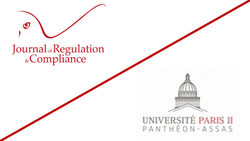
♾️ suivre Marie-Anne Frison-Roche sur LinkedIn
♾️s'abonner à la Newsletter MAFR Regulation, Compliance, Law
____
► Référence complète : M.-A. Frison-Roche, "L’obligation de compliance, entre volonté et consentement : obligation sur obligation vaut", in B. Deffains, M.-A. Frison-Roche et J.-B. Racine (dir.), Journal of Regulation & Compliance (JoRC) et Université Paris Panthéon-Assas, Compliance : Obligation, devoir, pouvoir, culture, Université Panthéon-Assas, Salle des Conseils, 13 juin 2023.
____
🎤consulter la présentation de l'autre conférence faite lors de la seconde journée de ce colloque : "Compliance et Droit processuel"
____
🧮Consulter le programme de cette manifestation
____
► Présentation de la conférence : Le Droit des contrats noue le "consentement" et la "volonté", puisque le consentement est ce qui manifeste la volonté d'une personne, en marque la liberté et l'engagement, en constitue la trace et la preuve. En 1995, j'ai montré que le Droit économique avait distingué le consentement et la volonté, pour rendre les consentements autonomes et en faire des marchés, notamment dans le Droit de la concurrence et le Droit financier📎
Puis en rendant hommage à Pierre Godé qui avait fait sa thèse sur la volonté📎
Mais la difficulté à comprendre le système général du Droit de la Compliance vient de la confusion souvent faite entre celui-ci et ce qui n'est qu'un de ses outils : la conformité. Or, la conformité est l'obligation pour un sujet de droit, certaines entreprises de donner à voir en Ex Ante qu'elles obéissent activement à la réglementation qui leur est applicable. J'ai montré en 2016📎
Les entreprise qui sont sujets du Droit de la Compliance ne sont alors pas toutes les entreprises, ni celles qui seraient "coupables" par avance, mais celles qui "sont en position" d'atteindre les buts : les "entreprises cruciales", notion que j'ai proposée en 2006📎
Il demeure que les entreprises, qui entrent dans le commerce juridique par leur personnalité juridique, peuvent elles-aussi exprimer leur volonté et non pas seulement consentir. Elles le font non seulement dans la mise en œuvre, ce que la Volonté du Législateur leur demande, mais encore en édictant des Buts, là où se loge la normativité du Droit de la Compliance.
C'est là où l'on doit affirmer dans un nouvel adage : Obligation sur Obligation vaut.
En effet, si l'entreprise exerce sa puissance juridique non seulement sa capacité à obéir (consentement), ce qui est une puissance faible, mais encore en exerçant leur puissance pour l'effectivité, l'efficacité et l'efficience des Buts Monumentaux du Droit de la Compliance, les systèmes et les êtres humains qui y sont impliquées en sont les bénéficiaires.
C'est pourquoi dans une conception générale du "pouvoir" que j'ai dessinée pour rendre hommage à Emmanuel Gaillard qui avait consacré sa thèse à cette notion📎
Le sujet premier devient alors en théorie et en pratique l'articulation entre la Volonté du Législateur (la "réglementation" applicable) et la Volonté des entreprises cruciales. Ce point sera particulièrement développé lors de la conférence.
La dimension probatoire de la question sera plutôt développée le lendemain dans la conférence qui, dans le cadre de ce cycle portant sur L'Obligation de Compliance, portera sur Compliance et Droit processuel.
_____________________________
La conférence est construite en trois temps :
III. OBLIGATION SUR OBLIGATION VAUT
________
M.-A. Frison-Roche, Remarques sur la distinction....
Mettre le titre et la fiche qui donne les références de la thèse
M.-A. Frison-Roche, Oui au principe de la volonté, Non aux consentements purs, 2018.
M.-A. Frison-Roche, Le Droit de la Compliance, 2016.
M.-A. Frison-Roche, Proposition pour une notion : "l'entreprise cruciale", 2006.
M.-A. Frison-Roche (dir.), Régulation, Supervision, Compliance, 2017.
M.-A. Frison-Roche, Concevoir le pouvoir, 2021.
June 7, 2023
Newsletter MAFR - Law, Compliance, Regulation

♾️suivre Marie-Anne Frison-Roche sur LinkedIn
♾️s'abonner à la Newsletter MAFR Regulation, Compliance, Law
____
► Référence complète : M.-A. Frison-Roche, "Message personnel", Newsletter MAFR Law, Compliance, Regulation, 7 juin 2023.
____
📧Lire par abonnement gratuit d'autres news de la Newsletter MAFR - Law, Compliance, Regulation
____
🔴 Message personnel sur la construction du Droit de la Compliance
____
📧lire l'article ⤵️
June 7, 2023
Thesaurus : Doctrine
► Référence complète : F.C. Matsumoto, « Qu’est-ce que la « souveraineté » en « droit international économique » ? (quelques usages historiques et contemporains du mot)», Revue Droits, PUF, 2023/2, n°78, pp.205-232.
____
🦉Cet article est accessible en texte intégral pour les personnes inscrites aux enseignements de la Professeure Marie-Anne Frison-Roche
________
June 6, 2023
Newsletter MAFR - Law, Compliance, Regulation
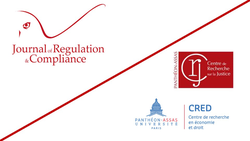
♾️suivre Marie-Anne Frison-Roche sur LinkedIn
♾️s'abonner à la Newsletter MAFR Regulation, Compliance, Law
____
► Référence complète : M.-A. Frison-Roche, "Compliance : obligation, devoir, pouvoir, culture (colloque 13 et 14 juin 2023)", Newsletter MAFR Law, Compliance, Regulation, 6 juin 2023.
____
📧Lire par abonnement gratuit d'autres news de la Newsletter MAFR - Law, Compliance, Regulation
____
🔴 Comprendre l'Obligation de Compliance afin d'en maîtriser la pratique (colloque des 13 et 14 juin 2023 du Journal of Regulation & Compliance (JoRC), du Centre de recherche sur la justice et le règlement des conflits (CRJ) et du Centre de recherche en économie et droit (CRED) de l'Université Paris Panthéon-Assas).
La compliance parait inmaîtrisable dans sa diversité et son ampleur et l'on doute parfois de sa juridicité.
Pour favoriser la maîtrise de cette pratique et construire le Droit de la Compliance, il est essentiel de mieux cerner l'Obligation de compliance.
C'est l'objet de ce colloque.
____
📧lire l'article ⤵️
June 2, 2023
Conferences

🌐follow Marie-Anne Frison-Roche on LinkedIn
🌐subscribe to the Newsletter MAFR Regulation, Compliance, Law
____
► Full Reference: M.-A. Frison-Roche, Le rôle du Juge dans le déploiement du Droit de la Régulation en Droit de la Compliance (The role of the Judge in the deployment of Regulatory Law in Compliance Law), in Conseil d'État (French Administrative Supreme Court) and Cour de cassation (French Judiciaire Supreme Court of cassation), De la Régulation à la Compliance : quel rôle pour le Juge ? ("From Regulatory to Compliance : what role for the judge?"), speech constituting the "closing session" of the bi-annual joint symposium of the two High Courts, held at the Conseil d'Etat, Salle d'Assemblée générale, 2 June 2023.
The event was held in French.
____
🧮See the full programme of this event (in French)
____
🎥watch the interview given about the conclusion, done after the speech (in French)
____
🧮read the general programme of the manifestation (in French)
____
📚read the bibliographical dossier du participant. (participant's file made in French)
___
🎥watch the general introductory speechs of Didier-Roland Tabuteau, Vice-Président du Conseil d'Etat, de Christophe Soulard, Premier Président de la Cour de cassation, and of François Molins, Procureur général près la Cour de cassation ; and the interventions in the first session devoted to the path from the Regulatory to the Compliance with Marie-Anne Barbat-Layani, présidente de l'AMF, Jean-Yves Ollier, conseiller d'Etat, Daniel Calleja-Crespo, directeur général du service juridique de la Commission européenne andChristine Guegen, , première avocate générale de la chambre commerciale de la Cour de cassation
____
🎥watch the speechs in the second session devoted to the office of the judge with Vincent Vigneau, président de la chambre commerciale de la Cour de cassation, François Ancel, conseiller à la première chambre civile de la Cour de cassatin, Astrid Mignon-Colombet, avocate à la Cour, Lucien Rapp, professeur à Toulouse-Capitol and Alain Seban, conseiller d'Etat ; the speechs of the third session dedicated to the Compliance new frontiers, with Christophe Chantepy, président de la section du contentieux du Conseil d'Etat, Roch-Olivier Maistre, président de l'Arcom, Paul Nihoul, juge au Tribunal de l'Union européenne, Jean-François Bohnert, procureur de la République financier, Joëlle Tolédano, professeure émérite à Dauphine ; the final session with Marie-Anne Frison-Roche
____
🎥watch this final speech by Marie-Anne Frison-Roche, which formed the closing session of the event
____
🚧read the bilingual Working Paper used as basis for the article to be published later
____
____
► English presentation of this general conclusion: Having a definition of Compliance Law in mind, a definition around which there still seems to be so much dispute, is not required to understand that this Law is what will enable us to enter and deal with a new world and if this subject is so fascinating to young people who want to become lawyers, prosecutors, regulators or judges, even though they are not taught this subject, it is because they have understood that with Compliance Law they will be able to actively participate in this new world and build it. This is the way we want it to take it, with force and courage in a sort of collective adventure. In this way, the Judges have a monumental role to play, which is at the very heart of Compliance Law.
They will necessarily be so because demands and claims will converge on them from all sides, from Internet users, consumers, investors, associations and companies, and the Judge will have to respond. This has already started and is only just beginning. Judges must be prepared.
Four expectations are emerging as to what their role should be.
Firstly, judges must persist in their role as guardians of the Rule of Law, in a Compliance Law impregnated with technologies (algorithms) that could be described as insensitive.
Secondly, beyond this vital role as guardian of the Rule of Law, the Judge has a new role in the extraordinary deployment of Compliance Law, which is measured in terms of the novelty of the normative control it exercises, the commitments it supports, the remedies it finds and the sustainability it reinforces.
Thirdly, in the natural space of justice, the judge responds to parties who make claims of compliance, both as plaintiff and defendant, because the causes of compliance are systemic causes that deserve a new jurisdictional treatment.
Fourthly, given the novelty and scope of this innovative approach, all judges must converge in terms of content, qualifications, and methods if they are both to continue their traditional role as guardians of the Rule of Law and to be able to endure their new role, a dialogue in which they have so much to contribute to each other.
________